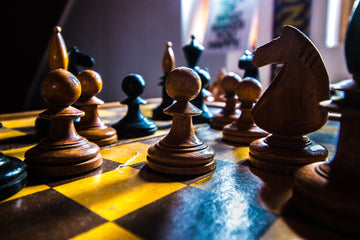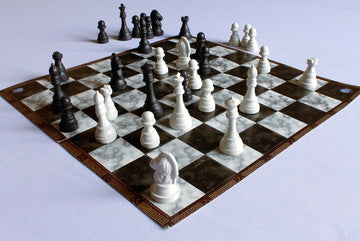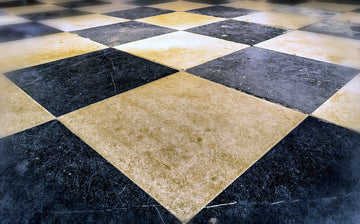
The Italian Game is probably one of the oldest openings in the game of chess. It was first played by Italian Grandmasters as far back as the sixteenth century. The Italian Game is a conventional opening that features natural and intuitive gameplay. It offers enough flexibility to transpose into other systems. The Italian Game focuses on center development and its fortification. Moving the bishop to c4 is the characteristic move that defines the Italian Game. It is also called as the ‘Italian Bishop’. Right in the start you see white is already attacking the weakest pawn on the board for black. This happens to be the f7 pawn. The Encyclopedia of Chess Openings (ECO) classifies this opening from C50 to C59.

The Italian Game is very similar to the Ruy Lopez Opening except for one move. In the Ruy Lopez, the white bishop is used to pin the black knight on c6. There is a lot of theory associated with it. The Italian Game however, preaches a more flexible and intuitive style of gameplay. It has lesser theory involved which makes it ideal for beginners to learn.
Pros and Cons
Some of the advantages of this opening are:
- It is an opening that features natural and conventional play. This is ideal for players just beginning to get into the game
- There is an emphasis on fortifying the center early on. This is the main theme of the Italian Game
- There are multiple chances for white to rapidly develop early on. This is a significant advantage
Some of the disadvantages of this opening are:
- The center is not an immediate threat for black. This may change later on in the game as the center is fortified
- This opening opens up the bishop on c4. There is a high probability that it is attacked

The moves involved in the Italian Game are:
- e4 e5
- Nf3 Nc6
- Bc4
.
Now is a good time to review the all important chess notations to have a better understanding of the variations below. Check out our article on chess notations here:
.
Let us look at some of the variations of the Italian Game
Hungarian Defence
The aim of the Hungarian Defence is to prevent White from moving their Knight to g5. If that happens, the white bishop will swoop in for a check. The Hungarian Defence is also preventing an attack on the weakest square on the board which happens to be the f7 square.

The moves involved in the Hungarian Defence are:
- e4 e5
- Nf3 Nc6
- Bc4 Be7
White would typically be inclined to castle at this stage. A couple of moves later black would follow. White also has the option of gaining control of the center by forwarding pawn d2 to d4. It is protected by the pawn on c3, the knight on f3 and the Queen.
Black on the other hand can play Nf6. This will directly attack the pawn on e4 which is unprotected. Black can also choose to de-stabilise the center with c6. The c7-c6 pawn chain is effective in doing this. Even if an exchange does take place, it will only create space for both players.
Two Knights Defence
The two knights defence is an interesting variation of the game that involves 3 knights for a battle of the center of the board. More than a defence, the Two Knights defence is actually a counter-attack of sorts.

The moves involved in the Hungarian Defence are:
- e4 e5
- Nf3 Nc6
- Bc4 Nf6
It is best for White to play Ng5 and with the bishop attack the f7 square collectively. The least benefit one would derive out of this is the capture of a pawn. This changes if black has already castled. In that case, white can still play Ng5 but black will play Na5. This way black threatens the capture of the unguarded white bishop on c4. A more effective line of attack would perhaps be the expansion of the Queenside and attacking from there. Further, black can also go ahead and exchange the light squared bishops.
Giuoco Piano
The Giuoco Piano is perhaps the most famed variation of the Italian Game. It is well reputed to stack up against the infamous e4 e5 setup. For this reason it is also commonly played among high ranking players of the game.

The moves involved in the Giuoco Piano are:
- e4 e5
- Nf3 Nc6
- Bc4 Bc5
White can move its bishop to g5. This will pin the black knight to the Queen and is reminiscent of the Ruy Lopez. Later on, white can also move its knight to d5 which would only aid the pin.
Further Reading 1: https://www.flyintobooks.com/the-italian-game-the-best-chess-opening-for-white/
Further Reading 2: https://exeterchessclub.org.uk/content/italian-game-beginners




